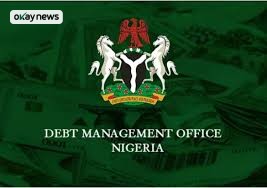Nigeria’s Central Bank (CBN) has unveiled new Dud Cheque Guidelines proposing an automatic five-year ban for individuals who repeatedly issue dishonoured cheques, marking one of the strongest regulatory crackdowns on payments-system abuse in West Africa. Okay News reports that the draft rule seeks to tighten compliance across the banking sector and restore confidence in cheque-based transactions.
Under the proposed Dud Cheque Guidelines, released for industry feedback under the CBN Act 2007 and BOFIA 2020, any cheque confirmed as a dud must be reported within one hour to the Credit Risk Management System and to at least two private credit bureaus. Banks must also notify affected customers within two working days through verifiable communication channels.
The CBN notes that the revised Dud Cheque Guidelines replace all previous directives, introducing stricter custody rules by requiring banks to retain copies of dishonoured cheques for a minimum of five years. The apex bank added that financial institutions must fully brief customers on the consequences of issuing dud cheques before issuing cheque books, in line with global best practices.
A customer becomes a “serial dud cheque issuer” after issuing three dishonoured cheques across Nigeria’s banking system. At that point, the Dud Cheque Guidelines require instant system-wide blacklisting, restricting access to the clearing system, current accounts, and all forms of credit for five years.
The most consequential clause states that any customer who reoffends after serving the initial ban will face a fresh five-year ban for each subsequent violation, effectively imposing unlimited renewable restrictions. The CBN describes this as a necessary deterrent to chronic offenders undermining financial stability.
The Dud Cheque Guidelines also outline penalties for non-compliant institutions. Banks face fines ranging from N1m to N5m per incident for failures such as delayed reporting, incomplete notifications, or issuing cheque books without status checks. Credit bureaus may be penalised up to N2m for failing to maintain accurate records of dud cheque issuers.
The exposure draft of the Dud Cheque Guidelines will remain open to stakeholder submissions for three weeks, with feedback directed to the Director, Financial Policy and Regulation Department. The CBN said the reforms are part of broader efforts to strengthen Nigeria’s payment ecosystem and align regulatory standards with international norms.







